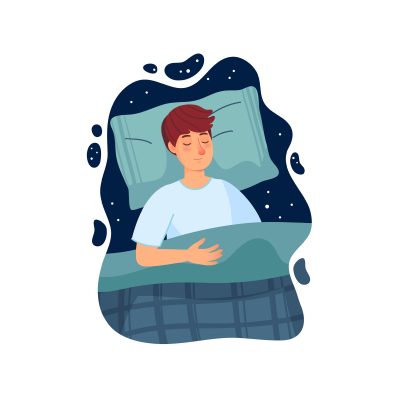
Article originally published on February 4, 2021.
We all know that exercise is important, but did you know that sleep is also crucial to living a healthy life? Instead of trading your sneakers for slippers, focus on achieving balance between regular physical activity and consistent, high-quality rest.
Healthy sleep patterns can boost your immune system, improve focus, reduce stress, minimize weight gain, reduce the risk of certain diseases, boost your mood and increase energy levels and productivity.
To improve your sleep, try the following:
Create a Routine
Establish your sleep pattern by going to bed and waking up around the same time each day. Aim to get 7 or more hours of sleep each night.
Ditch the Electronics
TVs, computers, smart phones and other electronics can decrease feelings of sleepiness. Try to avoid screen time for at least one hour before bed.
Set the Scene
Avoid working or studying where you sleep, and make your bedroom a place for rest. Dim lighting, comfortable temperatures and a relaxing atmosphere can set the scene for a restful night.
Plan Accordingly
Avoid eating large meals just before bedtime. Going to bed with a full stomach can trigger uncomfortable sleep disruptions, like heartburn or GERD. Likewise, alcohol and caffeine too close to bedtime can spell disaster for your slumber.
Exercise Early
Physical activity during the day can help you sleep better at night – but working out just before bedtime might be a bad idea. Reserve high intensity workouts for earlier in the day. Gentle exercises, like restorative yoga or stretching, are less likely to negatively impact sleep.
Stop Watching the Clock
If you’re adopting new sleep habits, remember that it can take time to establish a pattern. If you find yourself lying awake for more than 20 minutes, get out of bed and return when sleepy. This will help your brain make the connection between your bed and sleep (rather than watching the clock and feeling frustrated).
 Ask for Help
Ask for Help
Sleep disorders are common. Signs that you might be suffering from a sleep disorder could include:
- Trouble falling and staying asleep
- Excessive daytime sleepiness
- Aches, pains, itchiness or a frequent urge to move your legs at bedtime
- Loud, persistent snoring
- Pauses in breathing or waking up gasping for air
- Inability to focus or lack of concentration in your day-to-day life
- Feeling tired, even after a full night’s sleep
Sources: Centers for Disease Control and Prevention, U.S. Department of Health and Human Services, National Sleep Foundation

